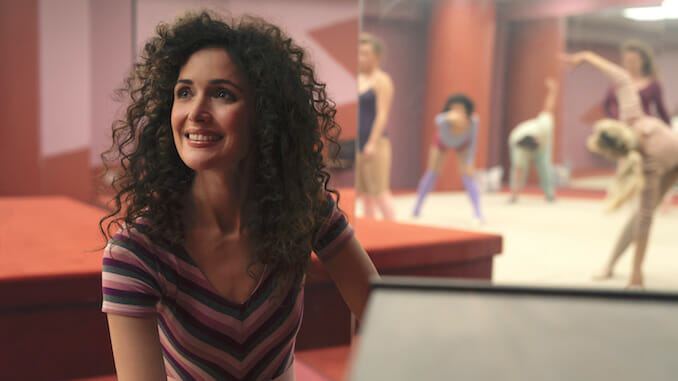Let’s Get Physical: Apple TV+’s New Dark Comedy Is Full of Potential
Photo Courtesy of Apple TV+
[This review originally published June 7th, 2021]
More than a year and a half after its launch, Apple TV+ remains somewhat of an enigma. The streaming service, without any licensed content, has one bona fide hit under its belt—the feel-good sports comedy Ted Lasso—and a couple of good, often great shows that have yet to break through to the masses (For All Mankind, Dickinson). Next, it will add to its small but growing catalog the ‘80s-set dark comedy Physical, which has the potential to reach similar creative heights, but may also be hamstrung by its existence on a streaming service that remains second tier to larger platforms like Netflix and HBO Max.
-

-

-

-

-

-

-

-

-

-

-

-

-

-

-

-

-

-

-

-

-

-

-

-

-

-

-

-

-

-

-

-

-

-

-

-

-

-

-

-








































